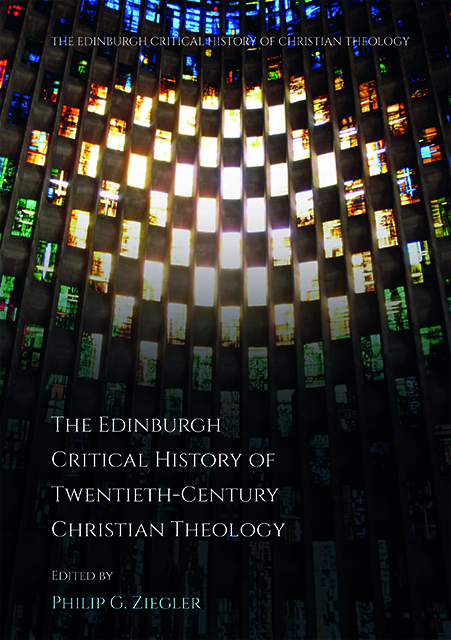Book contents
- Frontmatter
- List of Contents
- Notes on Contributors
- Editor's Introduction
- 1 Modern Theology in a Scientific, Historical Age
- 2 Tradition and Innovation
- 3 Scripture and Criticism
- 4 Reason, Method, System
- 5 Catholicism and Ecumenism
- 6 Fundamentalism and Evangelicalism
- 7 Synagogue, Sho’ah and State
- 8 Religion(s)
- 9 God
- 10 Spirit
- 11 Christ
- 12 Liberation and Freedom
- 13 The Secular – The Political: Augustine and Political Augustinianism in Twentieth-Century Political Theology
- 14 Globalisation after Empires: World Christianity and the Theological De-centring of Europe
- 15 War and Peace
- 16 Race and Black Theology
- 17 Sex and Gender
- 18 Hope
- Index
11 - Christ
Published online by Cambridge University Press: 14 July 2023
- Frontmatter
- List of Contents
- Notes on Contributors
- Editor's Introduction
- 1 Modern Theology in a Scientific, Historical Age
- 2 Tradition and Innovation
- 3 Scripture and Criticism
- 4 Reason, Method, System
- 5 Catholicism and Ecumenism
- 6 Fundamentalism and Evangelicalism
- 7 Synagogue, Sho’ah and State
- 8 Religion(s)
- 9 God
- 10 Spirit
- 11 Christ
- 12 Liberation and Freedom
- 13 The Secular – The Political: Augustine and Political Augustinianism in Twentieth-Century Political Theology
- 14 Globalisation after Empires: World Christianity and the Theological De-centring of Europe
- 15 War and Peace
- 16 Race and Black Theology
- 17 Sex and Gender
- 18 Hope
- Index
Summary
It should come as no surprise that how we consider Christ, what we say of him, says much about how we view Christianity and envisage and practise Christian theology. The twentieth century offers rich reflections on this topic, a good deal of which rightly seeks to remind us that, before being a topic, what is in view is a historical person who lived a long time ago, or, more precisely, a theological title, namely Christos (Χρστός), the Greek translation of messiah ( מ ׅ ★י ׇ ח , māšîah˙), meaning ‘the anointed one’. This title was conferred upon a person, Jesus of Nazareth, who may not have claimed it for himself, but who, according to the Synoptic Gospels, does not appear to have denied it either.
The history of twentieth-century reflections on Christ presents a dizzying array of proposals and revisions. Whether Christian theology made much progress on this theme in the course of the previous century is not as clear as we may first imagine. If it did not, this should not be disheartening: Christian theology ever circles around the same old mountains, contemplating them always anew though many outstanding thinkers have previously considered these topics. In many ways, twentieth-century ‘Christology’ continued to wrestle with problems inherited from the nineteenth century as well as from much older pronouncements (e.g. those made at the Council of Chalcedon in 451). Still, the astounding diversification and richness of Christological constructs in recent decades testifies to the vitality of Christian theology globally and signals how the Christian faith and theology are still very much ‘on the move’. For Christians, Christ – before being a theological topic, a theme calling for rigorous investigation and thought – is the living Jesus, the Son of God who, having been crucified, was ‘made’ Lord and Messiah by God (Acts 2:36). For Christian faith, Christology concerns not a remote or even dead subject, but asks about the one from Galilee who, having been put to death in infamous circumstances, was raised anew by God to new life: he is ‘Emmanuel’, ‘God-with-us’.
Twentieth-century Christology began, at least among modern Protestant thinkers, with a strong focus on Jesus’ ‘personality’. In fact, this term – Persönlichkeit – was a keyword of the early twentieth century, used to designate not just Jesus, but also God's being, and the human being's calling. Why a predilection for this concept?
- Type
- Chapter
- Information
- Publisher: Edinburgh University PressPrint publication year: 2022



